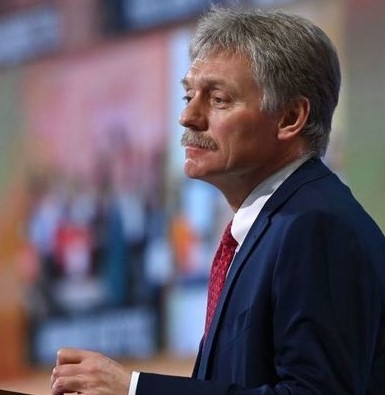Reuters reported difficulties in trade between Turkey and Russia due to US sanctions
The US decree on secondary sanctions for foreign banks that help circumvent restrictive measures against Russia has led to negative consequences for Turkish-Russian trade, Reuters reports, citing seven sources.
We are talking about the December decree of US President Joe Biden. it allows the US Treasury to introduce measures against foreign banks that help conduct transactions with sanctioned persons from Russia or facilitate the supply of certain materials and equipment to the Russian military-industrial complex.
The decree did not directly affect energy, but it slowed down the transfer of some payments for Russian oil and also affected Turkish exports to Russia, the agency writes. According to four sources, the problems are related to the fact that Turkish banks are reconsidering relations and tightening requirements for Russian clients. A Reuters source at a Russian oil company said Russian exporters had not received payments from Ankara for two to three weeks. A source in Turkey noted that the main difficulties arose precisely after Biden’s new decree, “some payments were disrupted.”
The oil supplies themselves were not disrupted, but one of the interlocutors admitted that “a problem could arise at any moment.” Over the 11 months of 2023, Russia supplied 8.9 million tons of crude oil and 9.4 million tons of diesel fuel to Turkey, becoming the largest exporter, the agency notes.
The decree also affected trade in goods not related to oil, the agency writes. According to one source, "the EXPORT of various equipment has stopped simply due to the similarity with military equipment." “The real problem is not with the payment that Turkey must make , but with the payment that it will receive. This shows the high level of hesitancy among Turkish banks due to sanctions,” he said.
According to the agency, exports from Turkey to Russia last year increased by 16.9%, to $10.9 billion, but in January decreased by 39% year-on-year, to $631 million. Imports from Russia in January decreased by 20.2 %.
RBC Pro development program Master 52 skills in a year The development program is a convenient tool for continuous learning new skills for a successful career What Henry Ford was wrong: 6 bad tips from world business gurus Itzhak Adizes: the main management problem in Russian companies is silence There is no point in doing it for months superfood: 6 rules of the founder of “Vkusville” Why and how to establish contact with your body and what does a career have to do with it Think like Jeff Bezos . What algorithms do successful businessmen use? Why challenges paralyze some managers and motivate others. Sprinkle ashes on your HEAD and get out of sight: what harms your reputation How to manage attention during the day - advice from a professor from the usa How management thinking errors brought Chrysler and Polaroid into trouble Alchemist or strategist: who you are as a leader and how this knowledge will help the business Why are you so scared to delegate. The Economist explains How to make a plan so you don't quit halfway: 6 stepsTurkey did not join sanctions against Russia due to military actions in Ukraine , but promised not to allow restrictions to be circumvented. At the beginning of 2024 , shortly after Biden’s decree, problems began for Russian companies; some Turkish banks canceled transactions that had already been accepted, explaining that the transactions concerned “prohibited goods.” Turkish financial organizations refused to cooperate with Russian ones, broke correspondent relationships and suspended payment processing without formally closing the contract.
By February 1, some Russian companies had their accounts in Turkey closed, and the requirements for issuing bank cards to individuals were tightened. Russian businessmen, in a conversation with RBC, also talked about increased restrictions on making payments in Turkey. The Kremlin said it was aware of the problems facing Russian companies and individuals, and called their source “completely unprecedented, naked and aggressive pressure” from the United States on Turkey, financial and other companies. Moscow maintains contact with Ankara on this issue, noted presidential press secretary Dmitry Peskov . Russia considers the sanctions illegal.

